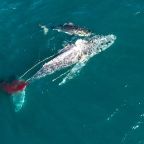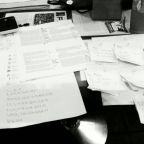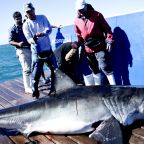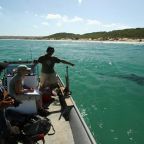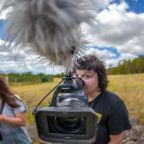Eat. Sleep. Work. Lather. Rinse. Repeat.
It’s easy to get wrapped up in the routine of modern society. Drifting in through the open office door as I write this are the sounds of hundreds of commuters on their way home from a day at the grindstone. And to be honest, who wants to return home from a day full of lectures and not just veg in front of the TV.

I mention this because as a freediver, when I tell someone that I can teach them to hold their breath for three, four, five minutes even, 9 times out of 10 they answer in utter disbelief “No way! I can hold my breath for 30 seconds, maybe!” The reason for this immediate doubt? Simple: it’s so easy to get caught up in the external hustle-and-bustle that we often lose touch with what our bodies are capable of.
Freediving as a skill has applications in snorkelling, underwater photography, spearfishing, marine biology, and sports like underwater hockey. But it’s more than any of that. Freediving is also a journey of self-discovery, of challenging limits, pushing the mind and body, and truly coming to appreciate the history and relationship that humans share with the ocean. I mean, just look at those pictures in Riley’s article. And as I like to say, if you can suppress the urge to breathe, a fundamental, life preserving reflex, imagine just what else you are capable of; a mental discipline that can be applied anywhere outside of the water!

And it doesn’t require superhuman athletic ability! I can do it. You can do it. Even Riley can do it, and they’re bloody kiwis (Editors Note: The current record for Constant Weight No-Fins freediving is 101m from fellow kiwi William Trubridge).
This article will be the first in a series introducing some of the concepts, philosophies, and techniques behind freediving, so that you, the budding ocean-lover, can begin to challenge yourself. So follow along and soon enough it will be you gracefully floating amongst the dusky sharks on next year’s Gap year.
The information we teach to beginner freedivers can be quite intimidating at first. There is physiology, equalisation, equipment, and safety, all to learn. But ultimately, freediving is meant to be just that, ‘freeing.’ Think about learning to drive. In the beginning it was a nerve racking experience, but now it comes second nature. To keep things simple we can use the same analogy of driving as we learn to freedive. The human body is a complex machine; the secret is to understand the inner-workings of that machine so that we can operate it properly and efficiently.
For the sake of our analogy we can break the breath hold into 3 components:
How much fuel can we carry? A car that is carrying more fuel can travel further. In our case the fuel is oxygen. Think about where and how oxygen is stored in the body. How can we increase the amount of fuel we can carry?
How efficiently can we use that fuel? If you’re a poor student like I was (and still am) you’ll be familiar with the concept of hypermiling, whereby you save petrol by coasting downhill in neutral and crawling uphill at low RPMs. This reduces engine load and demands less fuel. We need to similarly be conscious of our body’s muscular load and oxygen demand. What are some ways we can slow the use of oxygen in our own bodies?
How well can we tolerate low fuel? Lastly, can our automobile run on fumes? Or does it require a full tank of high-octane rocket fuel to keep the engine turning? Can we carry on when our brain tells us that it is time to breathe? Can we train to tolerate low levels of oxygen and the accumulation of other metabolites?

That will be it for now. Stay tuned for the next instalment where we expand upon these principles.
Keep these ideas in mind and comment below on how you think we can adjust our bodies to improve breath holding





